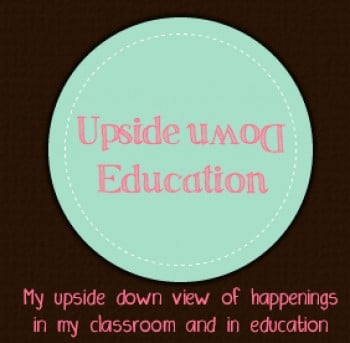I have one week of school left (the district has 1.5 weeks but my last week will be with my team at cheer camp). It’s time for year to be over, 6th graders can only be around each other for 9 months then their nerves & hormones need a break from everything. It’s now that time! Of course this time of year you start focusing on success and failures of this year. I think this year was a success. The students learned 2 things that as the year went on I wanted them to learn: to present well to others and to begin learning on their own. Yes, I wanted them to learn Earth science and I think they did. I wanted them to learn how they are effected by every fact that was taught (they have become awesome “environmentalist” and read their blog posts about the April tornado – they were in their safe places, something they had an assignment/blog on just 3 weeks before). But of all of those being able to present and take responsibility for their learning was the most important to me. Last week I attended TEDxRedMountain and it completely reiterated my beliefs of the importance of these two skills.
I’m breaking this post into two parts, so here’s part 1 – why presentation skills are so important:
My kids all will roll their eyes and say in unison “No one wants to be read to, especially by a 6th grader” when time to present. I know it’s harsh but that’s the #1 rule when presenting in my room. Stop judging, itt’s true and you know it. Being read to is boring and demeaning. If you are an expert at what you are presenting and want to share it (especially if you have a passion for it) you shouldn’t have to read anything. Who cares if you miss a sentence or two if you can share your knowledge. TEDxRedMountain was like anything that had presenters, some were more interesting than others. When it came down to it the ones who were there to deliver information could not compare to those who were BOTH experts and had an obvious passion about their topic. It was amazing to pay attention to the room when Scott Pierce spoke. The place was silent and still. He didn’t have fancy bulleted slides, didn’t speak loudly, didn’t pace the stage, he isn’t a local superstar, he stood there and spoke about what he knew and how he felt about it. And I sat there drawn to it completely. I kept thinking, wow, that is what makes a wonderful presentation. Every time we preset in my classroom over and over I tell them, no one wants to hear rehearsed facts. It’s so funny because now the kids interrupt or tattle on their classmates is someone spouts off a book definition. But just over the past month they have become better at knowing more than basic facts but have started inserting their opinions and ideas as well as information. This has been a huge corner for them to turn.
“Teaching” presentation skills is not easy and frustrating. It is something that has to be practiced over and over.
At least once every two weeks they are assigned to present something. Never make a big deal, but give them many opportunities. It has been interesting to see their progression over the year. Also I never have them to present alone, always with a group or partner, cuts down on the stage fright. And I never let them use a written script. They used to get so frustrated but I now don’t see that as much.
All year I have tweeted “anyone know how to teach presentation skills?” and no one has ever responded. I am pretty sure I am NOT doing it perfectly, but it is such an important skill I have to keep trying and pushing it. Students need to know the difference between a bad, good, and great presentation and what makes them different.
Part 2 on student learning later. 🙂

I think it’s interesting that no one responded to your tweets, I missed them until your conversation with Aviva on Twitter a few minutes ago!
Oral communication is so important in the real world and I would hope that many work it into their teaching! I know that in British Columbia, ‘speaking and listening’ is one third of our new language arts curriculum. The learning intentions are 1) to use oral language to interact, present, and listen, 2) to use strategies when interacting, presenting, and listening to improve speaking and listening and, 3) to use oral language to improve and extend thinking. There’s also the reflection component with having students reflect on, self-assess, and set goals for improvement in oral language. I know many of our teachers use the AVID strategies to help teach the presentation part and would be happy to send you links to all this if it would help!